A Comprehensive Report on Operations Management at Unilever
VerifiedAdded on 2021/02/19
|12
|3551
|45
Report
AI Summary
This report provides a comprehensive analysis of Unilever's operations management, focusing on its production department and strategic decisions. The report begins with an introduction to operations management, defining its key aspects and goals within an organization. It then delves into Unilever's structure, highlighting its global presence and diverse product portfolio, with a specific focus on its production department. The main body of the report explores Unilever's customer-centric approach, emphasizing the importance of quality, affordability, and product safety. It examines the company's operations objectives, including the use of the transformation model and the selection of the batch process as the most suitable production method. The report further discusses the characteristics of various production processes and their relevance to Unilever's operations, concluding with recommendations for maintaining and improving efficiency. The report emphasizes the importance of aligning production strategies with customer expectations to ensure long-term success. The report is contributed by a student to be published on the website Desklib, which is a platform that provides all the necessary AI based study tools for students.
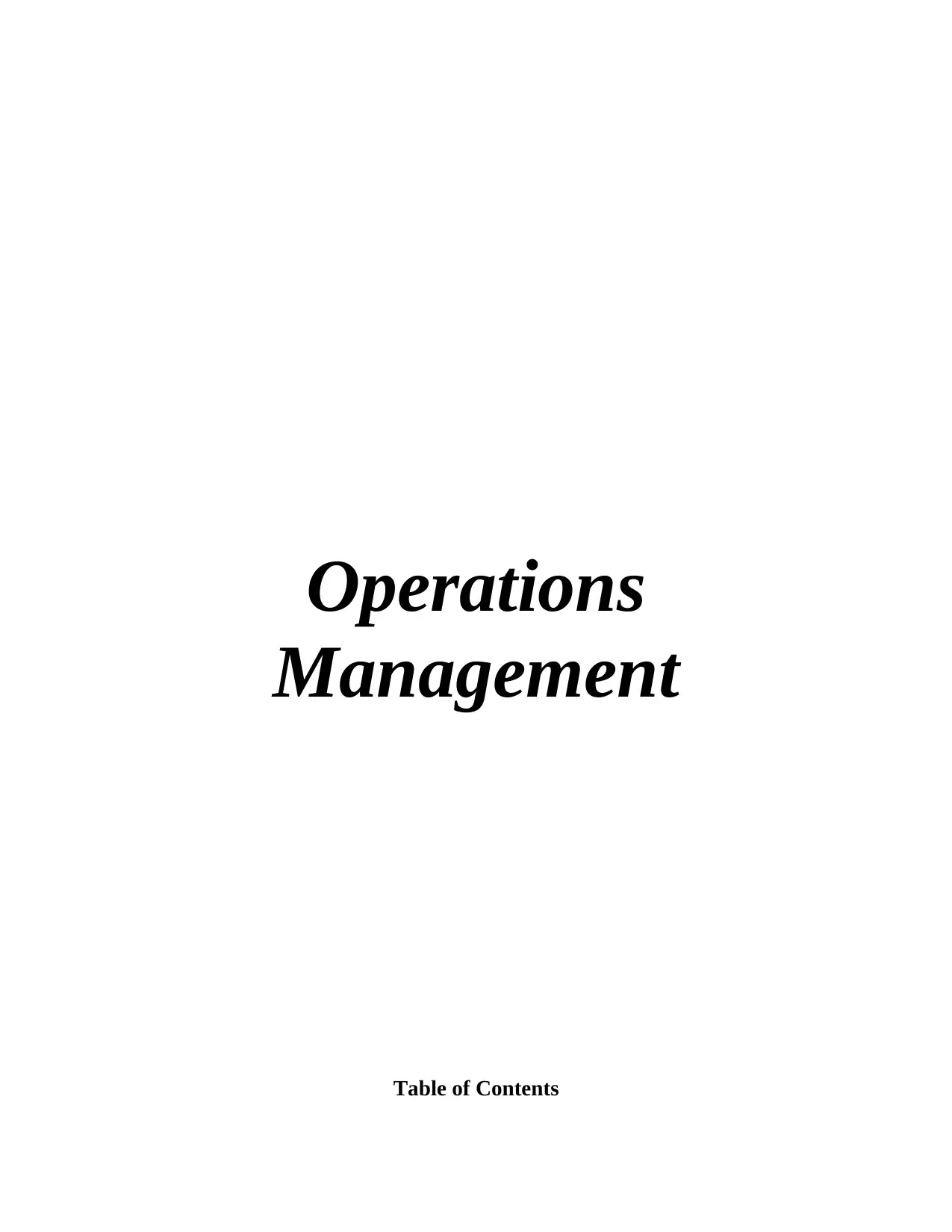
Operations
Management
Table of Contents
Management
Table of Contents
Paraphrase This Document
Need a fresh take? Get an instant paraphrase of this document with our AI Paraphraser
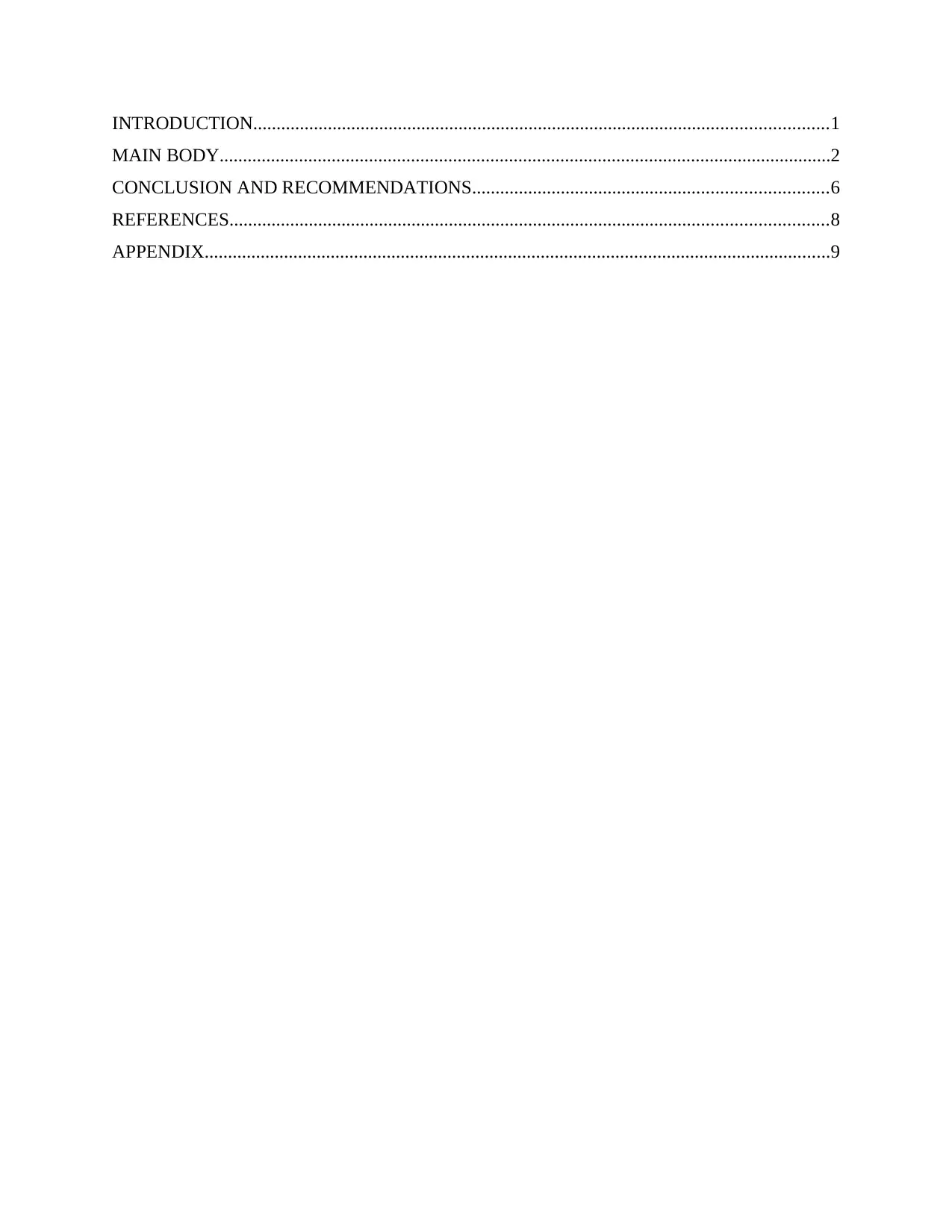
INTRODUCTION...........................................................................................................................1
MAIN BODY...................................................................................................................................2
CONCLUSION AND RECOMMENDATIONS............................................................................6
REFERENCES................................................................................................................................8
APPENDIX......................................................................................................................................9
MAIN BODY...................................................................................................................................2
CONCLUSION AND RECOMMENDATIONS............................................................................6
REFERENCES................................................................................................................................8
APPENDIX......................................................................................................................................9
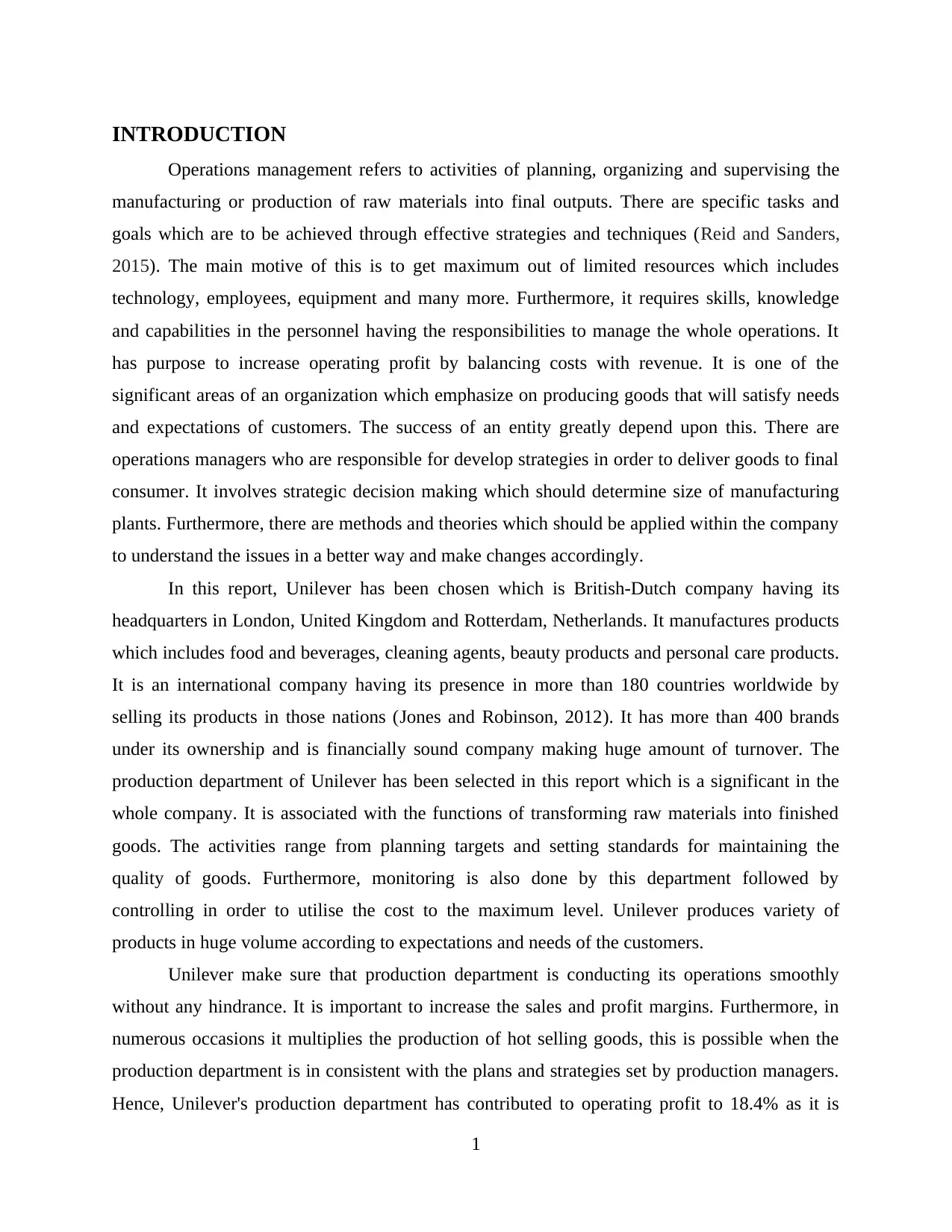
INTRODUCTION
Operations management refers to activities of planning, organizing and supervising the
manufacturing or production of raw materials into final outputs. There are specific tasks and
goals which are to be achieved through effective strategies and techniques (Reid and Sanders,
2015). The main motive of this is to get maximum out of limited resources which includes
technology, employees, equipment and many more. Furthermore, it requires skills, knowledge
and capabilities in the personnel having the responsibilities to manage the whole operations. It
has purpose to increase operating profit by balancing costs with revenue. It is one of the
significant areas of an organization which emphasize on producing goods that will satisfy needs
and expectations of customers. The success of an entity greatly depend upon this. There are
operations managers who are responsible for develop strategies in order to deliver goods to final
consumer. It involves strategic decision making which should determine size of manufacturing
plants. Furthermore, there are methods and theories which should be applied within the company
to understand the issues in a better way and make changes accordingly.
In this report, Unilever has been chosen which is British-Dutch company having its
headquarters in London, United Kingdom and Rotterdam, Netherlands. It manufactures products
which includes food and beverages, cleaning agents, beauty products and personal care products.
It is an international company having its presence in more than 180 countries worldwide by
selling its products in those nations (Jones and Robinson, 2012). It has more than 400 brands
under its ownership and is financially sound company making huge amount of turnover. The
production department of Unilever has been selected in this report which is a significant in the
whole company. It is associated with the functions of transforming raw materials into finished
goods. The activities range from planning targets and setting standards for maintaining the
quality of goods. Furthermore, monitoring is also done by this department followed by
controlling in order to utilise the cost to the maximum level. Unilever produces variety of
products in huge volume according to expectations and needs of the customers.
Unilever make sure that production department is conducting its operations smoothly
without any hindrance. It is important to increase the sales and profit margins. Furthermore, in
numerous occasions it multiplies the production of hot selling goods, this is possible when the
production department is in consistent with the plans and strategies set by production managers.
Hence, Unilever's production department has contributed to operating profit to 18.4% as it is
1
Operations management refers to activities of planning, organizing and supervising the
manufacturing or production of raw materials into final outputs. There are specific tasks and
goals which are to be achieved through effective strategies and techniques (Reid and Sanders,
2015). The main motive of this is to get maximum out of limited resources which includes
technology, employees, equipment and many more. Furthermore, it requires skills, knowledge
and capabilities in the personnel having the responsibilities to manage the whole operations. It
has purpose to increase operating profit by balancing costs with revenue. It is one of the
significant areas of an organization which emphasize on producing goods that will satisfy needs
and expectations of customers. The success of an entity greatly depend upon this. There are
operations managers who are responsible for develop strategies in order to deliver goods to final
consumer. It involves strategic decision making which should determine size of manufacturing
plants. Furthermore, there are methods and theories which should be applied within the company
to understand the issues in a better way and make changes accordingly.
In this report, Unilever has been chosen which is British-Dutch company having its
headquarters in London, United Kingdom and Rotterdam, Netherlands. It manufactures products
which includes food and beverages, cleaning agents, beauty products and personal care products.
It is an international company having its presence in more than 180 countries worldwide by
selling its products in those nations (Jones and Robinson, 2012). It has more than 400 brands
under its ownership and is financially sound company making huge amount of turnover. The
production department of Unilever has been selected in this report which is a significant in the
whole company. It is associated with the functions of transforming raw materials into finished
goods. The activities range from planning targets and setting standards for maintaining the
quality of goods. Furthermore, monitoring is also done by this department followed by
controlling in order to utilise the cost to the maximum level. Unilever produces variety of
products in huge volume according to expectations and needs of the customers.
Unilever make sure that production department is conducting its operations smoothly
without any hindrance. It is important to increase the sales and profit margins. Furthermore, in
numerous occasions it multiplies the production of hot selling goods, this is possible when the
production department is in consistent with the plans and strategies set by production managers.
Hence, Unilever's production department has contributed to operating profit to 18.4% as it is
1
⊘ This is a preview!⊘
Do you want full access?
Subscribe today to unlock all pages.

Trusted by 1+ million students worldwide
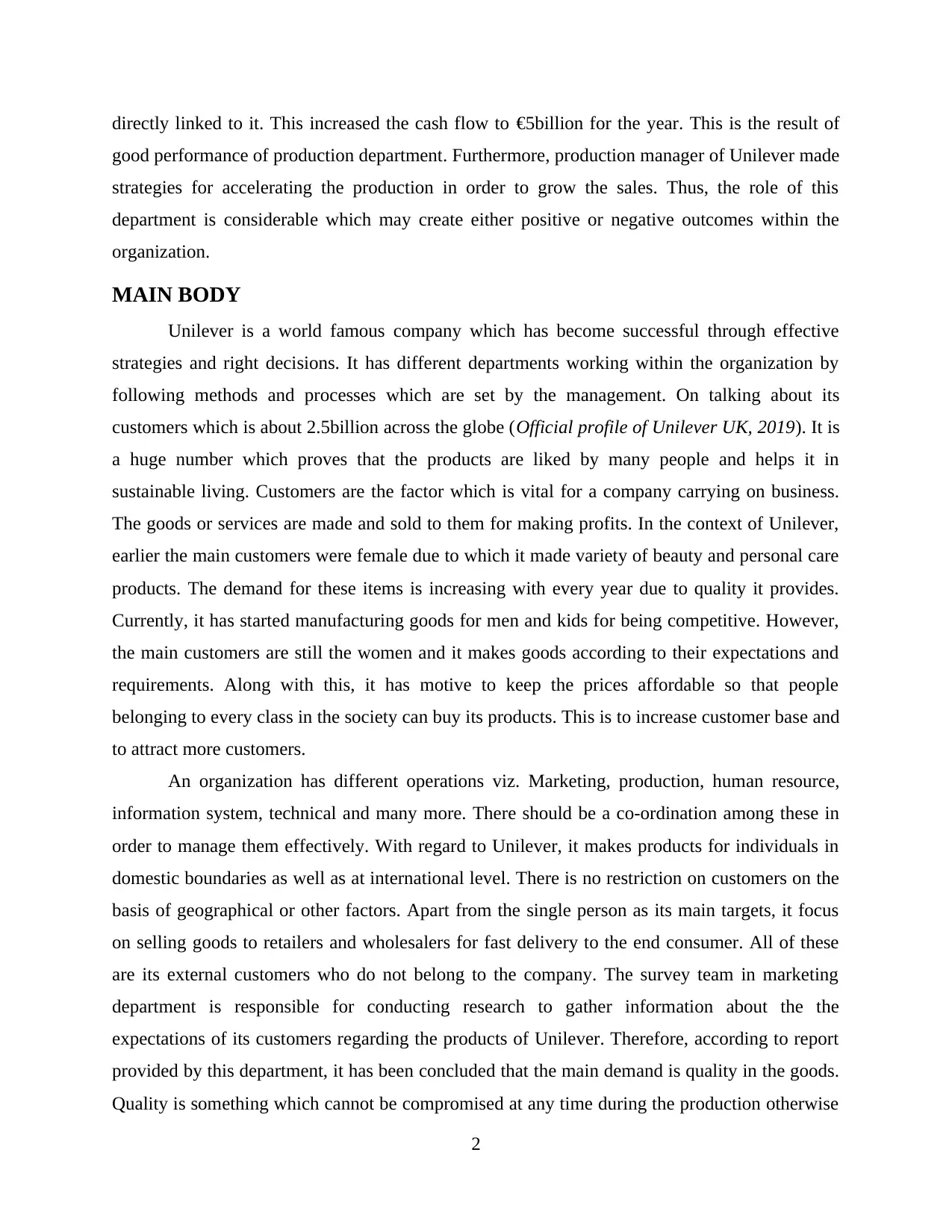
directly linked to it. This increased the cash flow to €5billion for the year. This is the result of
good performance of production department. Furthermore, production manager of Unilever made
strategies for accelerating the production in order to grow the sales. Thus, the role of this
department is considerable which may create either positive or negative outcomes within the
organization.
MAIN BODY
Unilever is a world famous company which has become successful through effective
strategies and right decisions. It has different departments working within the organization by
following methods and processes which are set by the management. On talking about its
customers which is about 2.5billion across the globe (Official profile of Unilever UK, 2019). It is
a huge number which proves that the products are liked by many people and helps it in
sustainable living. Customers are the factor which is vital for a company carrying on business.
The goods or services are made and sold to them for making profits. In the context of Unilever,
earlier the main customers were female due to which it made variety of beauty and personal care
products. The demand for these items is increasing with every year due to quality it provides.
Currently, it has started manufacturing goods for men and kids for being competitive. However,
the main customers are still the women and it makes goods according to their expectations and
requirements. Along with this, it has motive to keep the prices affordable so that people
belonging to every class in the society can buy its products. This is to increase customer base and
to attract more customers.
An organization has different operations viz. Marketing, production, human resource,
information system, technical and many more. There should be a co-ordination among these in
order to manage them effectively. With regard to Unilever, it makes products for individuals in
domestic boundaries as well as at international level. There is no restriction on customers on the
basis of geographical or other factors. Apart from the single person as its main targets, it focus
on selling goods to retailers and wholesalers for fast delivery to the end consumer. All of these
are its external customers who do not belong to the company. The survey team in marketing
department is responsible for conducting research to gather information about the the
expectations of its customers regarding the products of Unilever. Therefore, according to report
provided by this department, it has been concluded that the main demand is quality in the goods.
Quality is something which cannot be compromised at any time during the production otherwise
2
good performance of production department. Furthermore, production manager of Unilever made
strategies for accelerating the production in order to grow the sales. Thus, the role of this
department is considerable which may create either positive or negative outcomes within the
organization.
MAIN BODY
Unilever is a world famous company which has become successful through effective
strategies and right decisions. It has different departments working within the organization by
following methods and processes which are set by the management. On talking about its
customers which is about 2.5billion across the globe (Official profile of Unilever UK, 2019). It is
a huge number which proves that the products are liked by many people and helps it in
sustainable living. Customers are the factor which is vital for a company carrying on business.
The goods or services are made and sold to them for making profits. In the context of Unilever,
earlier the main customers were female due to which it made variety of beauty and personal care
products. The demand for these items is increasing with every year due to quality it provides.
Currently, it has started manufacturing goods for men and kids for being competitive. However,
the main customers are still the women and it makes goods according to their expectations and
requirements. Along with this, it has motive to keep the prices affordable so that people
belonging to every class in the society can buy its products. This is to increase customer base and
to attract more customers.
An organization has different operations viz. Marketing, production, human resource,
information system, technical and many more. There should be a co-ordination among these in
order to manage them effectively. With regard to Unilever, it makes products for individuals in
domestic boundaries as well as at international level. There is no restriction on customers on the
basis of geographical or other factors. Apart from the single person as its main targets, it focus
on selling goods to retailers and wholesalers for fast delivery to the end consumer. All of these
are its external customers who do not belong to the company. The survey team in marketing
department is responsible for conducting research to gather information about the the
expectations of its customers regarding the products of Unilever. Therefore, according to report
provided by this department, it has been concluded that the main demand is quality in the goods.
Quality is something which cannot be compromised at any time during the production otherwise
2
Paraphrase This Document
Need a fresh take? Get an instant paraphrase of this document with our AI Paraphraser
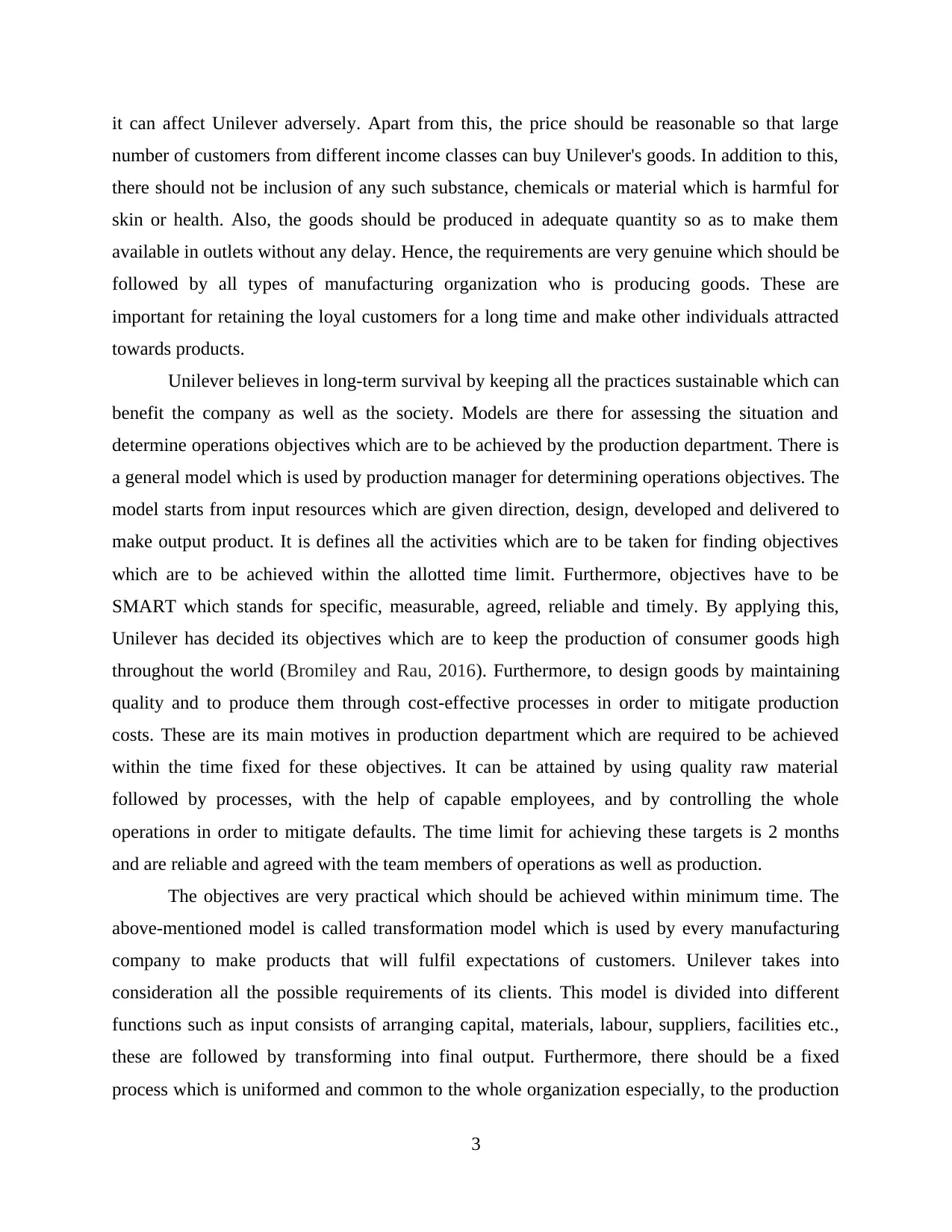
it can affect Unilever adversely. Apart from this, the price should be reasonable so that large
number of customers from different income classes can buy Unilever's goods. In addition to this,
there should not be inclusion of any such substance, chemicals or material which is harmful for
skin or health. Also, the goods should be produced in adequate quantity so as to make them
available in outlets without any delay. Hence, the requirements are very genuine which should be
followed by all types of manufacturing organization who is producing goods. These are
important for retaining the loyal customers for a long time and make other individuals attracted
towards products.
Unilever believes in long-term survival by keeping all the practices sustainable which can
benefit the company as well as the society. Models are there for assessing the situation and
determine operations objectives which are to be achieved by the production department. There is
a general model which is used by production manager for determining operations objectives. The
model starts from input resources which are given direction, design, developed and delivered to
make output product. It is defines all the activities which are to be taken for finding objectives
which are to be achieved within the allotted time limit. Furthermore, objectives have to be
SMART which stands for specific, measurable, agreed, reliable and timely. By applying this,
Unilever has decided its objectives which are to keep the production of consumer goods high
throughout the world (Bromiley and Rau, 2016). Furthermore, to design goods by maintaining
quality and to produce them through cost-effective processes in order to mitigate production
costs. These are its main motives in production department which are required to be achieved
within the time fixed for these objectives. It can be attained by using quality raw material
followed by processes, with the help of capable employees, and by controlling the whole
operations in order to mitigate defaults. The time limit for achieving these targets is 2 months
and are reliable and agreed with the team members of operations as well as production.
The objectives are very practical which should be achieved within minimum time. The
above-mentioned model is called transformation model which is used by every manufacturing
company to make products that will fulfil expectations of customers. Unilever takes into
consideration all the possible requirements of its clients. This model is divided into different
functions such as input consists of arranging capital, materials, labour, suppliers, facilities etc.,
these are followed by transforming into final output. Furthermore, there should be a fixed
process which is uniformed and common to the whole organization especially, to the production
3
number of customers from different income classes can buy Unilever's goods. In addition to this,
there should not be inclusion of any such substance, chemicals or material which is harmful for
skin or health. Also, the goods should be produced in adequate quantity so as to make them
available in outlets without any delay. Hence, the requirements are very genuine which should be
followed by all types of manufacturing organization who is producing goods. These are
important for retaining the loyal customers for a long time and make other individuals attracted
towards products.
Unilever believes in long-term survival by keeping all the practices sustainable which can
benefit the company as well as the society. Models are there for assessing the situation and
determine operations objectives which are to be achieved by the production department. There is
a general model which is used by production manager for determining operations objectives. The
model starts from input resources which are given direction, design, developed and delivered to
make output product. It is defines all the activities which are to be taken for finding objectives
which are to be achieved within the allotted time limit. Furthermore, objectives have to be
SMART which stands for specific, measurable, agreed, reliable and timely. By applying this,
Unilever has decided its objectives which are to keep the production of consumer goods high
throughout the world (Bromiley and Rau, 2016). Furthermore, to design goods by maintaining
quality and to produce them through cost-effective processes in order to mitigate production
costs. These are its main motives in production department which are required to be achieved
within the time fixed for these objectives. It can be attained by using quality raw material
followed by processes, with the help of capable employees, and by controlling the whole
operations in order to mitigate defaults. The time limit for achieving these targets is 2 months
and are reliable and agreed with the team members of operations as well as production.
The objectives are very practical which should be achieved within minimum time. The
above-mentioned model is called transformation model which is used by every manufacturing
company to make products that will fulfil expectations of customers. Unilever takes into
consideration all the possible requirements of its clients. This model is divided into different
functions such as input consists of arranging capital, materials, labour, suppliers, facilities etc.,
these are followed by transforming into final output. Furthermore, there should be a fixed
process which is uniformed and common to the whole organization especially, to the production
3
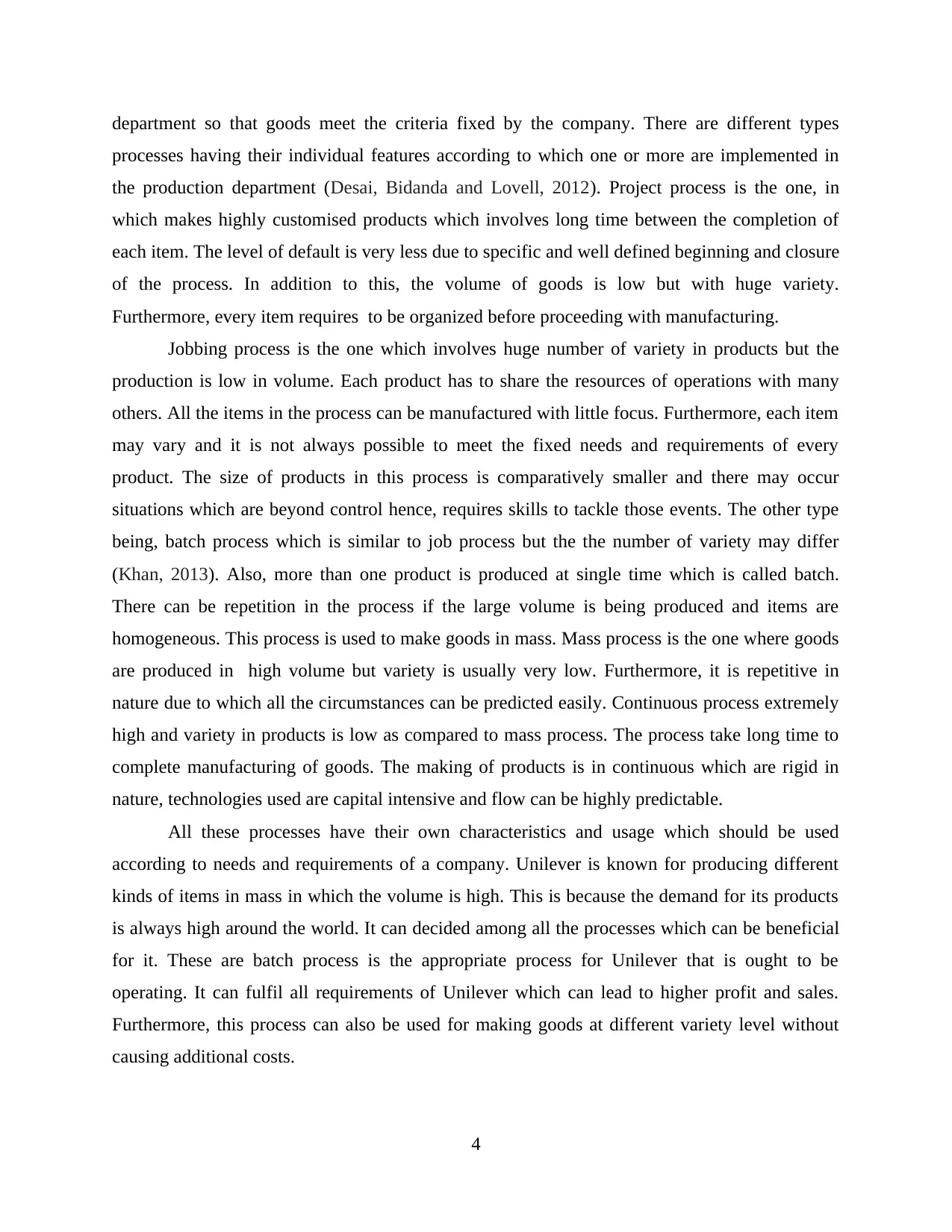
department so that goods meet the criteria fixed by the company. There are different types
processes having their individual features according to which one or more are implemented in
the production department (Desai, Bidanda and Lovell, 2012). Project process is the one, in
which makes highly customised products which involves long time between the completion of
each item. The level of default is very less due to specific and well defined beginning and closure
of the process. In addition to this, the volume of goods is low but with huge variety.
Furthermore, every item requires to be organized before proceeding with manufacturing.
Jobbing process is the one which involves huge number of variety in products but the
production is low in volume. Each product has to share the resources of operations with many
others. All the items in the process can be manufactured with little focus. Furthermore, each item
may vary and it is not always possible to meet the fixed needs and requirements of every
product. The size of products in this process is comparatively smaller and there may occur
situations which are beyond control hence, requires skills to tackle those events. The other type
being, batch process which is similar to job process but the the number of variety may differ
(Khan, 2013). Also, more than one product is produced at single time which is called batch.
There can be repetition in the process if the large volume is being produced and items are
homogeneous. This process is used to make goods in mass. Mass process is the one where goods
are produced in high volume but variety is usually very low. Furthermore, it is repetitive in
nature due to which all the circumstances can be predicted easily. Continuous process extremely
high and variety in products is low as compared to mass process. The process take long time to
complete manufacturing of goods. The making of products is in continuous which are rigid in
nature, technologies used are capital intensive and flow can be highly predictable.
All these processes have their own characteristics and usage which should be used
according to needs and requirements of a company. Unilever is known for producing different
kinds of items in mass in which the volume is high. This is because the demand for its products
is always high around the world. It can decided among all the processes which can be beneficial
for it. These are batch process is the appropriate process for Unilever that is ought to be
operating. It can fulfil all requirements of Unilever which can lead to higher profit and sales.
Furthermore, this process can also be used for making goods at different variety level without
causing additional costs.
4
processes having their individual features according to which one or more are implemented in
the production department (Desai, Bidanda and Lovell, 2012). Project process is the one, in
which makes highly customised products which involves long time between the completion of
each item. The level of default is very less due to specific and well defined beginning and closure
of the process. In addition to this, the volume of goods is low but with huge variety.
Furthermore, every item requires to be organized before proceeding with manufacturing.
Jobbing process is the one which involves huge number of variety in products but the
production is low in volume. Each product has to share the resources of operations with many
others. All the items in the process can be manufactured with little focus. Furthermore, each item
may vary and it is not always possible to meet the fixed needs and requirements of every
product. The size of products in this process is comparatively smaller and there may occur
situations which are beyond control hence, requires skills to tackle those events. The other type
being, batch process which is similar to job process but the the number of variety may differ
(Khan, 2013). Also, more than one product is produced at single time which is called batch.
There can be repetition in the process if the large volume is being produced and items are
homogeneous. This process is used to make goods in mass. Mass process is the one where goods
are produced in high volume but variety is usually very low. Furthermore, it is repetitive in
nature due to which all the circumstances can be predicted easily. Continuous process extremely
high and variety in products is low as compared to mass process. The process take long time to
complete manufacturing of goods. The making of products is in continuous which are rigid in
nature, technologies used are capital intensive and flow can be highly predictable.
All these processes have their own characteristics and usage which should be used
according to needs and requirements of a company. Unilever is known for producing different
kinds of items in mass in which the volume is high. This is because the demand for its products
is always high around the world. It can decided among all the processes which can be beneficial
for it. These are batch process is the appropriate process for Unilever that is ought to be
operating. It can fulfil all requirements of Unilever which can lead to higher profit and sales.
Furthermore, this process can also be used for making goods at different variety level without
causing additional costs.
4
⊘ This is a preview!⊘
Do you want full access?
Subscribe today to unlock all pages.

Trusted by 1+ million students worldwide
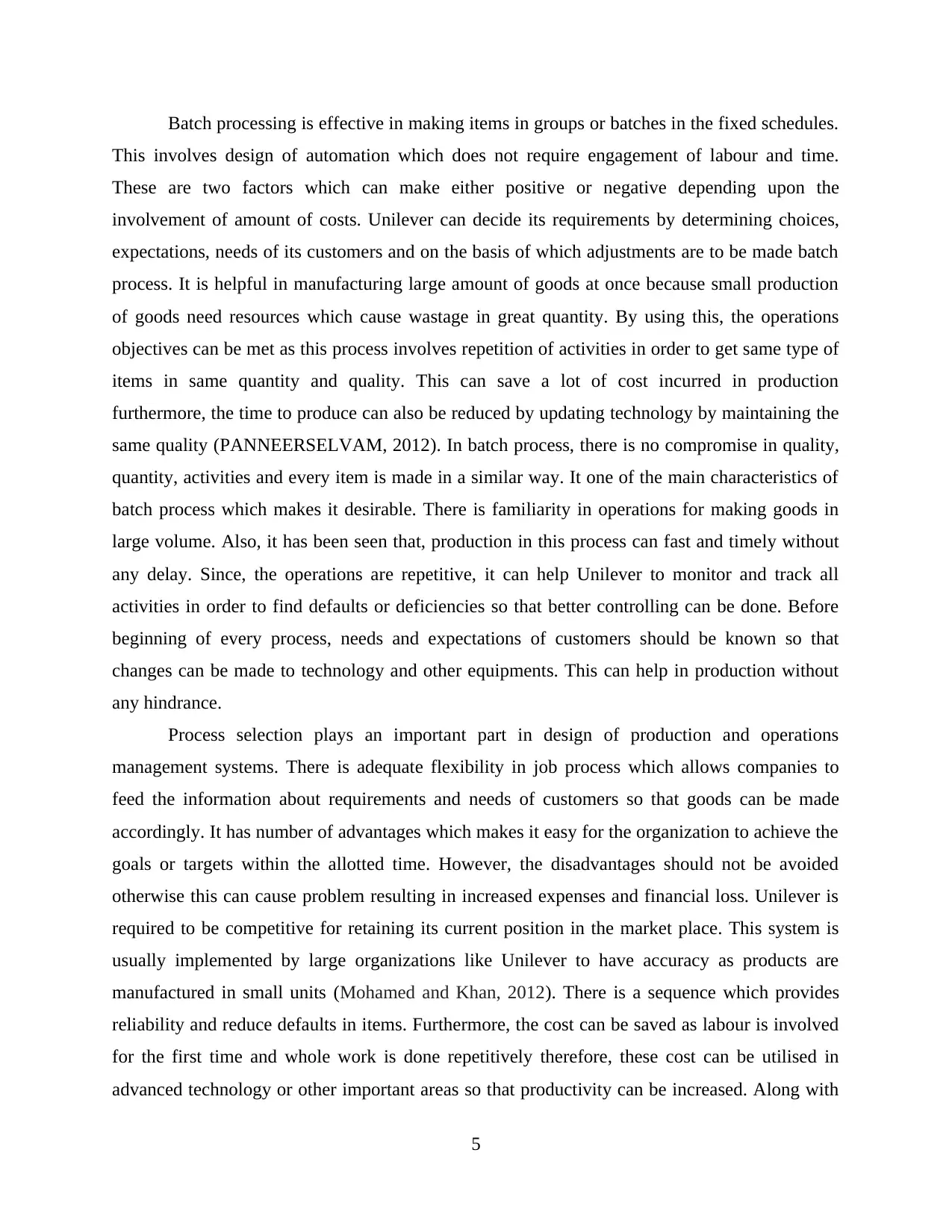
Batch processing is effective in making items in groups or batches in the fixed schedules.
This involves design of automation which does not require engagement of labour and time.
These are two factors which can make either positive or negative depending upon the
involvement of amount of costs. Unilever can decide its requirements by determining choices,
expectations, needs of its customers and on the basis of which adjustments are to be made batch
process. It is helpful in manufacturing large amount of goods at once because small production
of goods need resources which cause wastage in great quantity. By using this, the operations
objectives can be met as this process involves repetition of activities in order to get same type of
items in same quantity and quality. This can save a lot of cost incurred in production
furthermore, the time to produce can also be reduced by updating technology by maintaining the
same quality (PANNEERSELVAM, 2012). In batch process, there is no compromise in quality,
quantity, activities and every item is made in a similar way. It one of the main characteristics of
batch process which makes it desirable. There is familiarity in operations for making goods in
large volume. Also, it has been seen that, production in this process can fast and timely without
any delay. Since, the operations are repetitive, it can help Unilever to monitor and track all
activities in order to find defaults or deficiencies so that better controlling can be done. Before
beginning of every process, needs and expectations of customers should be known so that
changes can be made to technology and other equipments. This can help in production without
any hindrance.
Process selection plays an important part in design of production and operations
management systems. There is adequate flexibility in job process which allows companies to
feed the information about requirements and needs of customers so that goods can be made
accordingly. It has number of advantages which makes it easy for the organization to achieve the
goals or targets within the allotted time. However, the disadvantages should not be avoided
otherwise this can cause problem resulting in increased expenses and financial loss. Unilever is
required to be competitive for retaining its current position in the market place. This system is
usually implemented by large organizations like Unilever to have accuracy as products are
manufactured in small units (Mohamed and Khan, 2012). There is a sequence which provides
reliability and reduce defaults in items. Furthermore, the cost can be saved as labour is involved
for the first time and whole work is done repetitively therefore, these cost can be utilised in
advanced technology or other important areas so that productivity can be increased. Along with
5
This involves design of automation which does not require engagement of labour and time.
These are two factors which can make either positive or negative depending upon the
involvement of amount of costs. Unilever can decide its requirements by determining choices,
expectations, needs of its customers and on the basis of which adjustments are to be made batch
process. It is helpful in manufacturing large amount of goods at once because small production
of goods need resources which cause wastage in great quantity. By using this, the operations
objectives can be met as this process involves repetition of activities in order to get same type of
items in same quantity and quality. This can save a lot of cost incurred in production
furthermore, the time to produce can also be reduced by updating technology by maintaining the
same quality (PANNEERSELVAM, 2012). In batch process, there is no compromise in quality,
quantity, activities and every item is made in a similar way. It one of the main characteristics of
batch process which makes it desirable. There is familiarity in operations for making goods in
large volume. Also, it has been seen that, production in this process can fast and timely without
any delay. Since, the operations are repetitive, it can help Unilever to monitor and track all
activities in order to find defaults or deficiencies so that better controlling can be done. Before
beginning of every process, needs and expectations of customers should be known so that
changes can be made to technology and other equipments. This can help in production without
any hindrance.
Process selection plays an important part in design of production and operations
management systems. There is adequate flexibility in job process which allows companies to
feed the information about requirements and needs of customers so that goods can be made
accordingly. It has number of advantages which makes it easy for the organization to achieve the
goals or targets within the allotted time. However, the disadvantages should not be avoided
otherwise this can cause problem resulting in increased expenses and financial loss. Unilever is
required to be competitive for retaining its current position in the market place. This system is
usually implemented by large organizations like Unilever to have accuracy as products are
manufactured in small units (Mohamed and Khan, 2012). There is a sequence which provides
reliability and reduce defaults in items. Furthermore, the cost can be saved as labour is involved
for the first time and whole work is done repetitively therefore, these cost can be utilised in
advanced technology or other important areas so that productivity can be increased. Along with
5
Paraphrase This Document
Need a fresh take? Get an instant paraphrase of this document with our AI Paraphraser
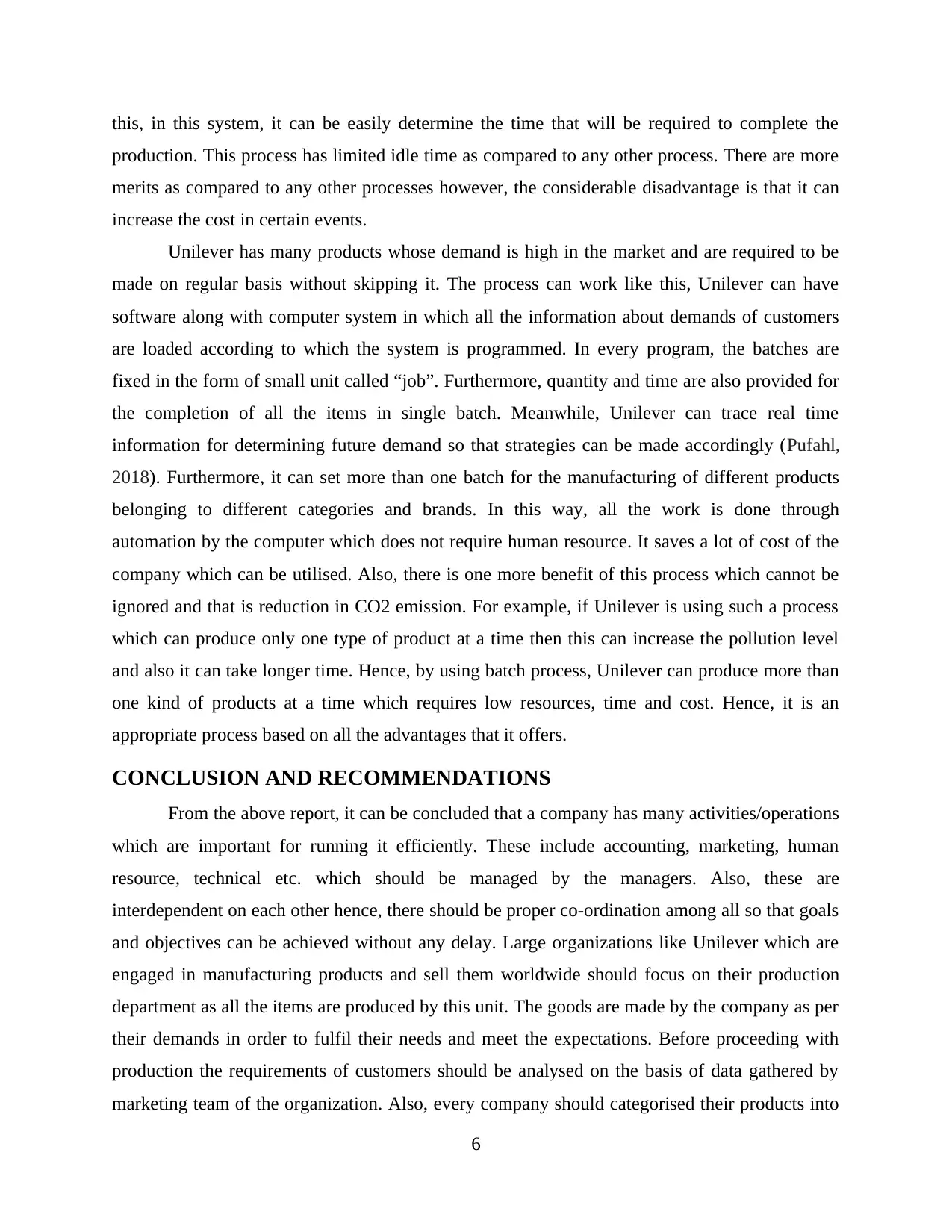
this, in this system, it can be easily determine the time that will be required to complete the
production. This process has limited idle time as compared to any other process. There are more
merits as compared to any other processes however, the considerable disadvantage is that it can
increase the cost in certain events.
Unilever has many products whose demand is high in the market and are required to be
made on regular basis without skipping it. The process can work like this, Unilever can have
software along with computer system in which all the information about demands of customers
are loaded according to which the system is programmed. In every program, the batches are
fixed in the form of small unit called “job”. Furthermore, quantity and time are also provided for
the completion of all the items in single batch. Meanwhile, Unilever can trace real time
information for determining future demand so that strategies can be made accordingly (Pufahl,
2018). Furthermore, it can set more than one batch for the manufacturing of different products
belonging to different categories and brands. In this way, all the work is done through
automation by the computer which does not require human resource. It saves a lot of cost of the
company which can be utilised. Also, there is one more benefit of this process which cannot be
ignored and that is reduction in CO2 emission. For example, if Unilever is using such a process
which can produce only one type of product at a time then this can increase the pollution level
and also it can take longer time. Hence, by using batch process, Unilever can produce more than
one kind of products at a time which requires low resources, time and cost. Hence, it is an
appropriate process based on all the advantages that it offers.
CONCLUSION AND RECOMMENDATIONS
From the above report, it can be concluded that a company has many activities/operations
which are important for running it efficiently. These include accounting, marketing, human
resource, technical etc. which should be managed by the managers. Also, these are
interdependent on each other hence, there should be proper co-ordination among all so that goals
and objectives can be achieved without any delay. Large organizations like Unilever which are
engaged in manufacturing products and sell them worldwide should focus on their production
department as all the items are produced by this unit. The goods are made by the company as per
their demands in order to fulfil their needs and meet the expectations. Before proceeding with
production the requirements of customers should be analysed on the basis of data gathered by
marketing team of the organization. Also, every company should categorised their products into
6
production. This process has limited idle time as compared to any other process. There are more
merits as compared to any other processes however, the considerable disadvantage is that it can
increase the cost in certain events.
Unilever has many products whose demand is high in the market and are required to be
made on regular basis without skipping it. The process can work like this, Unilever can have
software along with computer system in which all the information about demands of customers
are loaded according to which the system is programmed. In every program, the batches are
fixed in the form of small unit called “job”. Furthermore, quantity and time are also provided for
the completion of all the items in single batch. Meanwhile, Unilever can trace real time
information for determining future demand so that strategies can be made accordingly (Pufahl,
2018). Furthermore, it can set more than one batch for the manufacturing of different products
belonging to different categories and brands. In this way, all the work is done through
automation by the computer which does not require human resource. It saves a lot of cost of the
company which can be utilised. Also, there is one more benefit of this process which cannot be
ignored and that is reduction in CO2 emission. For example, if Unilever is using such a process
which can produce only one type of product at a time then this can increase the pollution level
and also it can take longer time. Hence, by using batch process, Unilever can produce more than
one kind of products at a time which requires low resources, time and cost. Hence, it is an
appropriate process based on all the advantages that it offers.
CONCLUSION AND RECOMMENDATIONS
From the above report, it can be concluded that a company has many activities/operations
which are important for running it efficiently. These include accounting, marketing, human
resource, technical etc. which should be managed by the managers. Also, these are
interdependent on each other hence, there should be proper co-ordination among all so that goals
and objectives can be achieved without any delay. Large organizations like Unilever which are
engaged in manufacturing products and sell them worldwide should focus on their production
department as all the items are produced by this unit. The goods are made by the company as per
their demands in order to fulfil their needs and meet the expectations. Before proceeding with
production the requirements of customers should be analysed on the basis of data gathered by
marketing team of the organization. Also, every company should categorised their products into
6
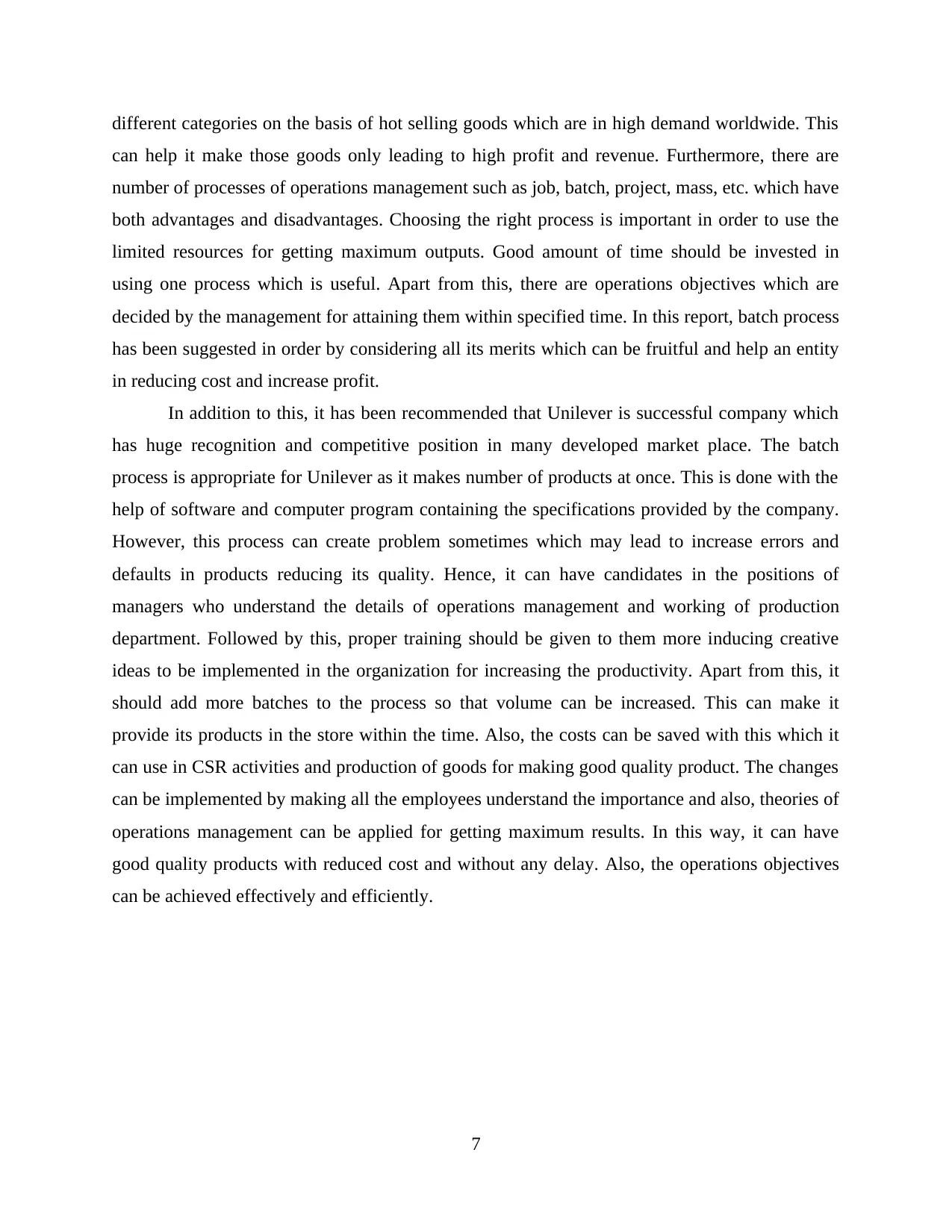
different categories on the basis of hot selling goods which are in high demand worldwide. This
can help it make those goods only leading to high profit and revenue. Furthermore, there are
number of processes of operations management such as job, batch, project, mass, etc. which have
both advantages and disadvantages. Choosing the right process is important in order to use the
limited resources for getting maximum outputs. Good amount of time should be invested in
using one process which is useful. Apart from this, there are operations objectives which are
decided by the management for attaining them within specified time. In this report, batch process
has been suggested in order by considering all its merits which can be fruitful and help an entity
in reducing cost and increase profit.
In addition to this, it has been recommended that Unilever is successful company which
has huge recognition and competitive position in many developed market place. The batch
process is appropriate for Unilever as it makes number of products at once. This is done with the
help of software and computer program containing the specifications provided by the company.
However, this process can create problem sometimes which may lead to increase errors and
defaults in products reducing its quality. Hence, it can have candidates in the positions of
managers who understand the details of operations management and working of production
department. Followed by this, proper training should be given to them more inducing creative
ideas to be implemented in the organization for increasing the productivity. Apart from this, it
should add more batches to the process so that volume can be increased. This can make it
provide its products in the store within the time. Also, the costs can be saved with this which it
can use in CSR activities and production of goods for making good quality product. The changes
can be implemented by making all the employees understand the importance and also, theories of
operations management can be applied for getting maximum results. In this way, it can have
good quality products with reduced cost and without any delay. Also, the operations objectives
can be achieved effectively and efficiently.
7
can help it make those goods only leading to high profit and revenue. Furthermore, there are
number of processes of operations management such as job, batch, project, mass, etc. which have
both advantages and disadvantages. Choosing the right process is important in order to use the
limited resources for getting maximum outputs. Good amount of time should be invested in
using one process which is useful. Apart from this, there are operations objectives which are
decided by the management for attaining them within specified time. In this report, batch process
has been suggested in order by considering all its merits which can be fruitful and help an entity
in reducing cost and increase profit.
In addition to this, it has been recommended that Unilever is successful company which
has huge recognition and competitive position in many developed market place. The batch
process is appropriate for Unilever as it makes number of products at once. This is done with the
help of software and computer program containing the specifications provided by the company.
However, this process can create problem sometimes which may lead to increase errors and
defaults in products reducing its quality. Hence, it can have candidates in the positions of
managers who understand the details of operations management and working of production
department. Followed by this, proper training should be given to them more inducing creative
ideas to be implemented in the organization for increasing the productivity. Apart from this, it
should add more batches to the process so that volume can be increased. This can make it
provide its products in the store within the time. Also, the costs can be saved with this which it
can use in CSR activities and production of goods for making good quality product. The changes
can be implemented by making all the employees understand the importance and also, theories of
operations management can be applied for getting maximum results. In this way, it can have
good quality products with reduced cost and without any delay. Also, the operations objectives
can be achieved effectively and efficiently.
7
⊘ This is a preview!⊘
Do you want full access?
Subscribe today to unlock all pages.

Trusted by 1+ million students worldwide
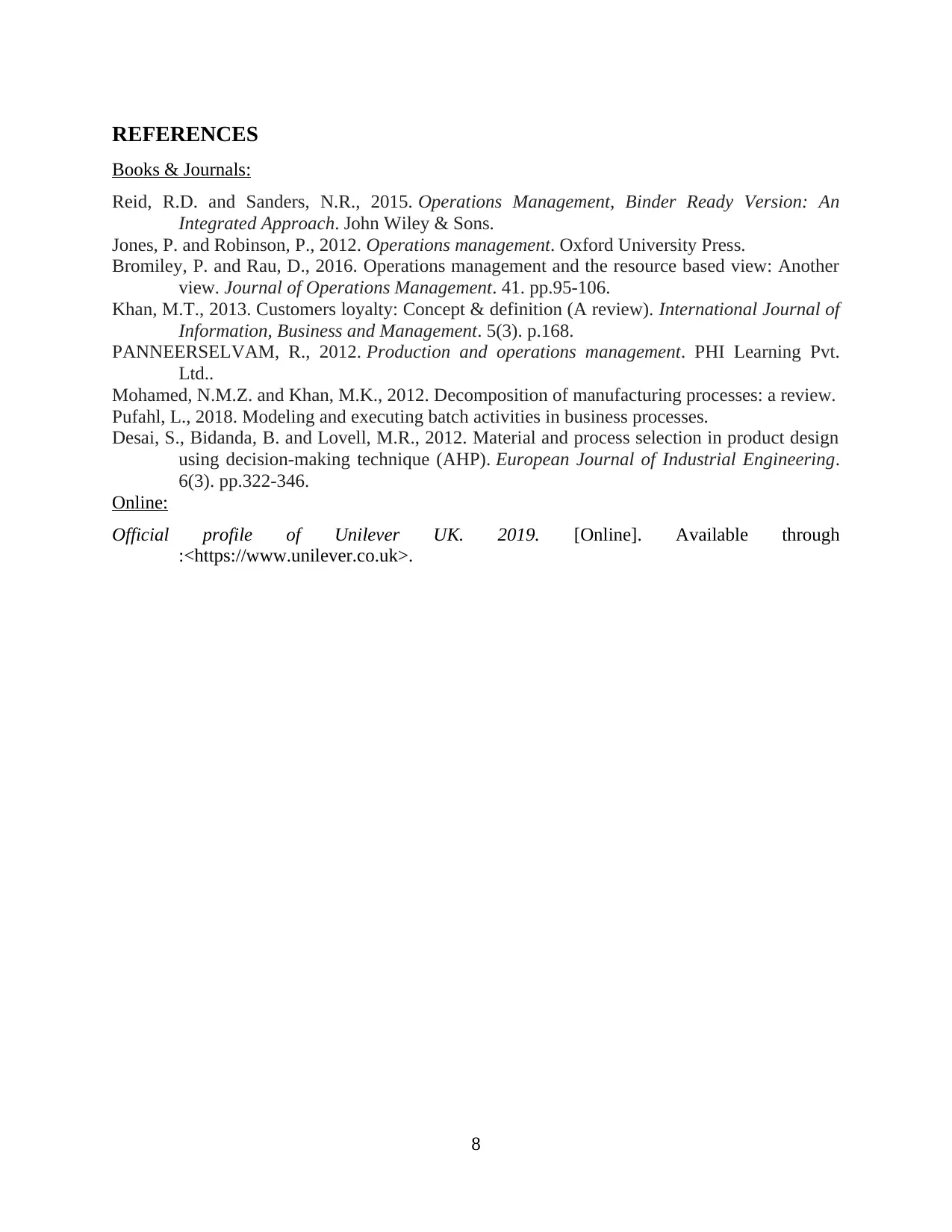
REFERENCES
Books & Journals:
Reid, R.D. and Sanders, N.R., 2015. Operations Management, Binder Ready Version: An
Integrated Approach. John Wiley & Sons.
Jones, P. and Robinson, P., 2012. Operations management. Oxford University Press.
Bromiley, P. and Rau, D., 2016. Operations management and the resource based view: Another
view. Journal of Operations Management. 41. pp.95-106.
Khan, M.T., 2013. Customers loyalty: Concept & definition (A review). International Journal of
Information, Business and Management. 5(3). p.168.
PANNEERSELVAM, R., 2012. Production and operations management. PHI Learning Pvt.
Ltd..
Mohamed, N.M.Z. and Khan, M.K., 2012. Decomposition of manufacturing processes: a review.
Pufahl, L., 2018. Modeling and executing batch activities in business processes.
Desai, S., Bidanda, B. and Lovell, M.R., 2012. Material and process selection in product design
using decision-making technique (AHP). European Journal of Industrial Engineering.
6(3). pp.322-346.
Online:
Official profile of Unilever UK. 2019. [Online]. Available through
:<https://www.unilever.co.uk>.
8
Books & Journals:
Reid, R.D. and Sanders, N.R., 2015. Operations Management, Binder Ready Version: An
Integrated Approach. John Wiley & Sons.
Jones, P. and Robinson, P., 2012. Operations management. Oxford University Press.
Bromiley, P. and Rau, D., 2016. Operations management and the resource based view: Another
view. Journal of Operations Management. 41. pp.95-106.
Khan, M.T., 2013. Customers loyalty: Concept & definition (A review). International Journal of
Information, Business and Management. 5(3). p.168.
PANNEERSELVAM, R., 2012. Production and operations management. PHI Learning Pvt.
Ltd..
Mohamed, N.M.Z. and Khan, M.K., 2012. Decomposition of manufacturing processes: a review.
Pufahl, L., 2018. Modeling and executing batch activities in business processes.
Desai, S., Bidanda, B. and Lovell, M.R., 2012. Material and process selection in product design
using decision-making technique (AHP). European Journal of Industrial Engineering.
6(3). pp.322-346.
Online:
Official profile of Unilever UK. 2019. [Online]. Available through
:<https://www.unilever.co.uk>.
8
Paraphrase This Document
Need a fresh take? Get an instant paraphrase of this document with our AI Paraphraser
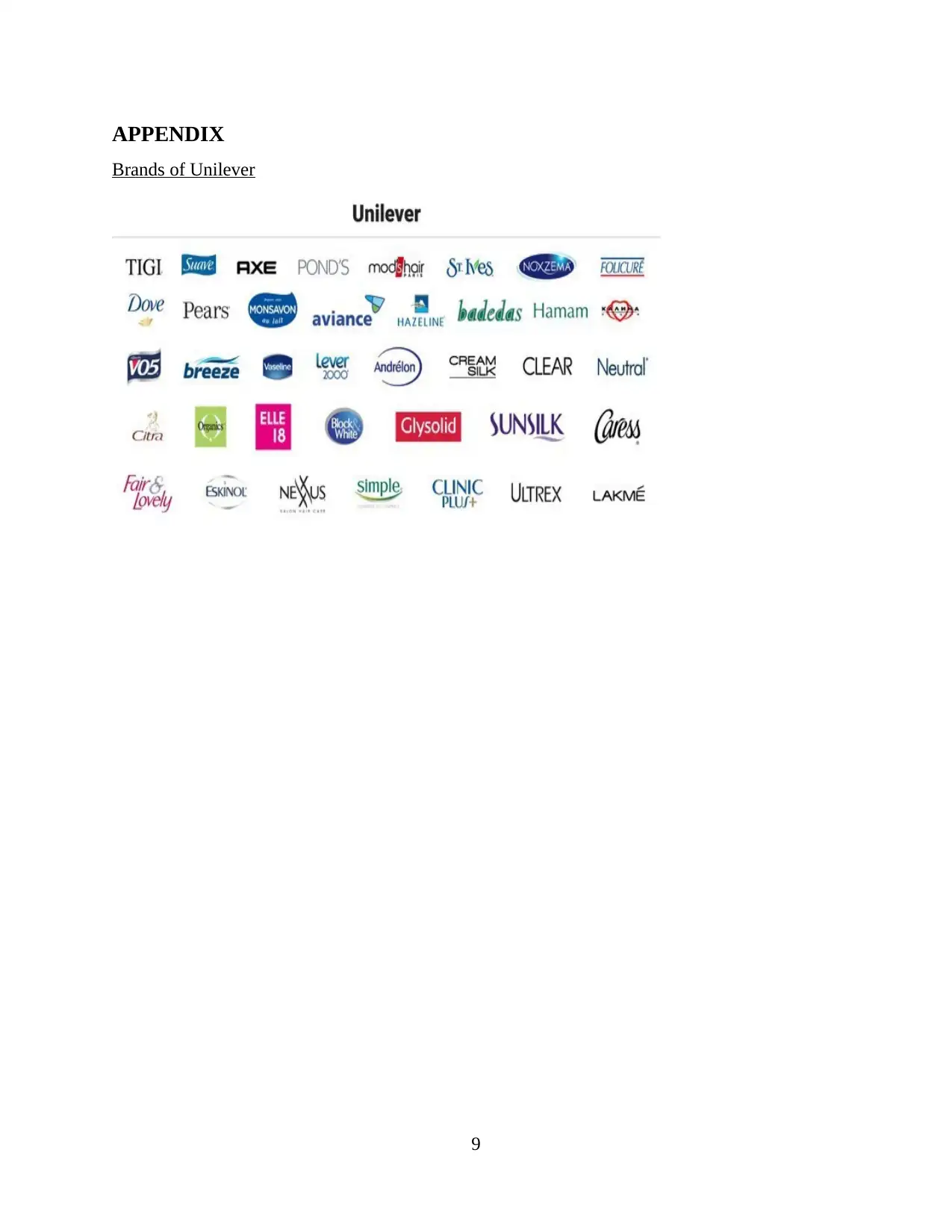
APPENDIX
Brands of Unilever
9
Brands of Unilever
9
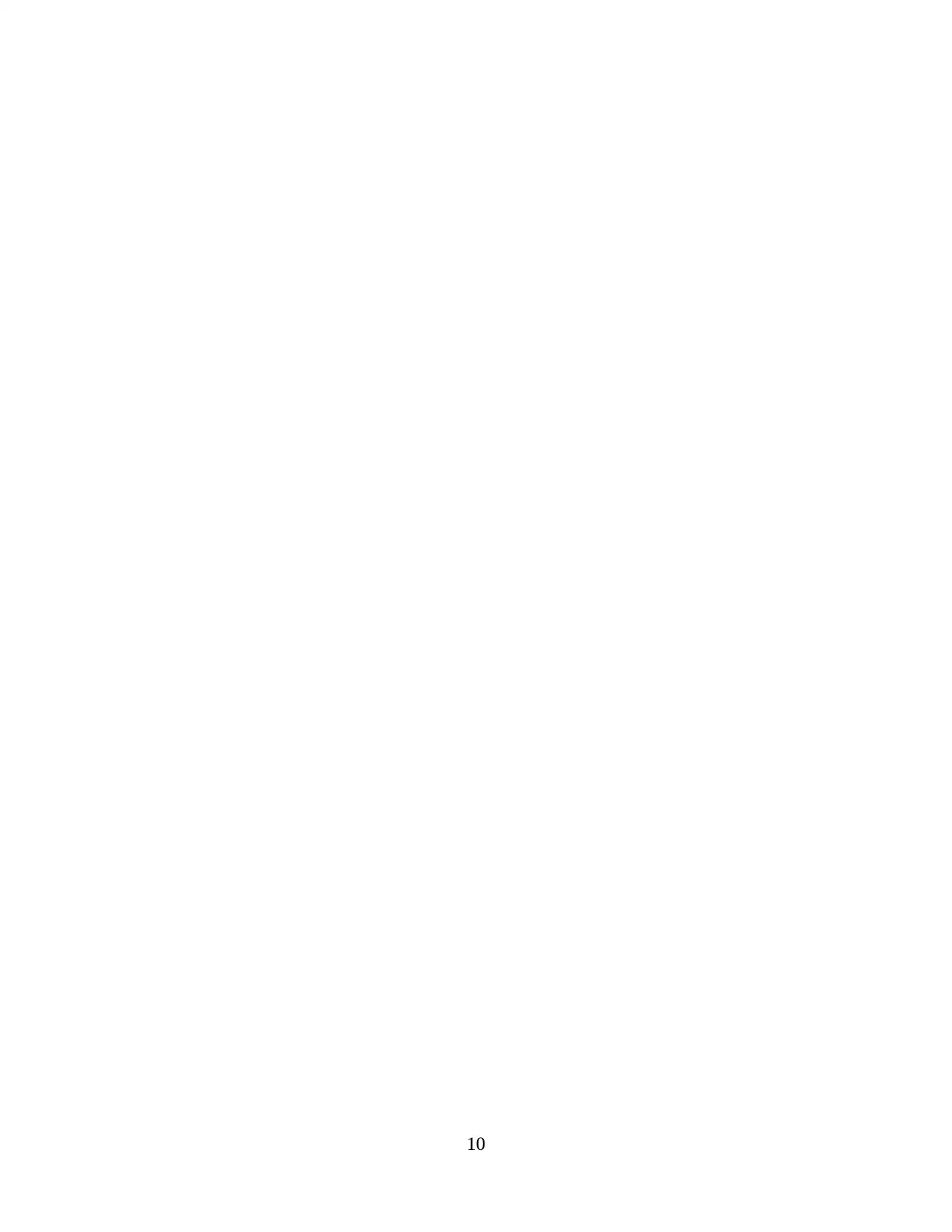
10
⊘ This is a preview!⊘
Do you want full access?
Subscribe today to unlock all pages.

Trusted by 1+ million students worldwide
1 out of 12
Related Documents
Your All-in-One AI-Powered Toolkit for Academic Success.
+13062052269
info@desklib.com
Available 24*7 on WhatsApp / Email
![[object Object]](/_next/static/media/star-bottom.7253800d.svg)
Unlock your academic potential
Copyright © 2020–2026 A2Z Services. All Rights Reserved. Developed and managed by ZUCOL.




